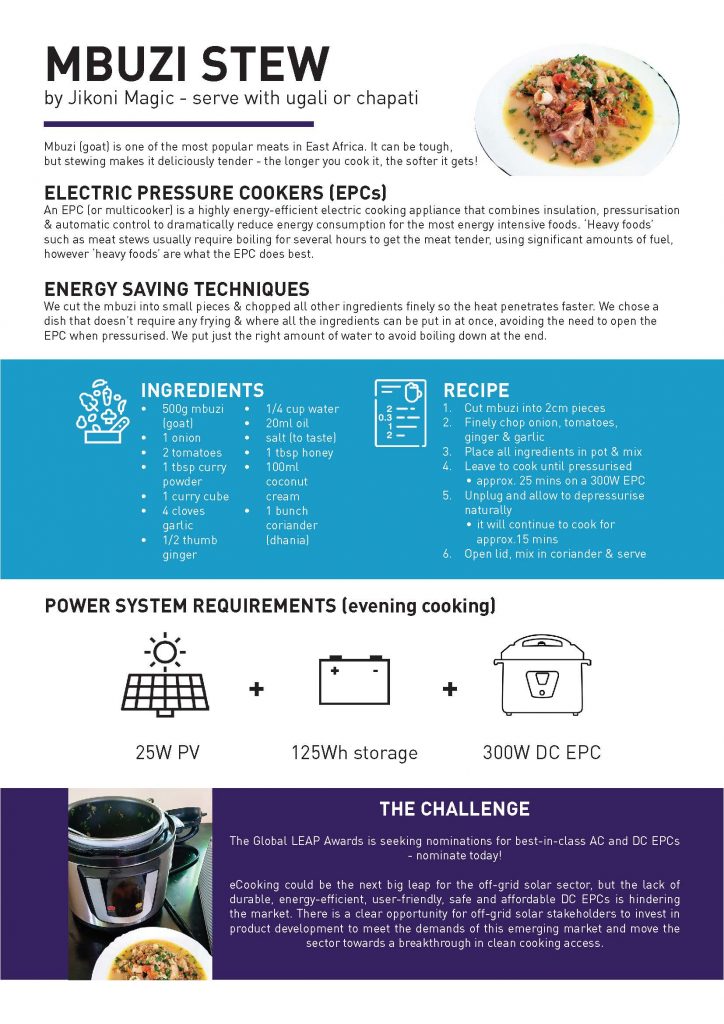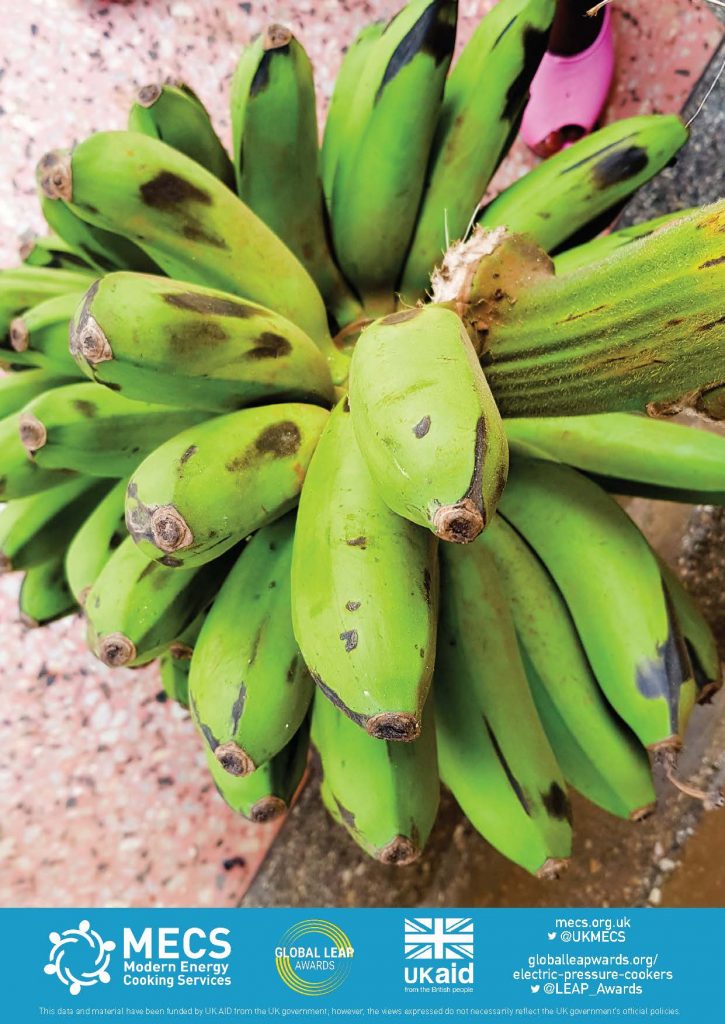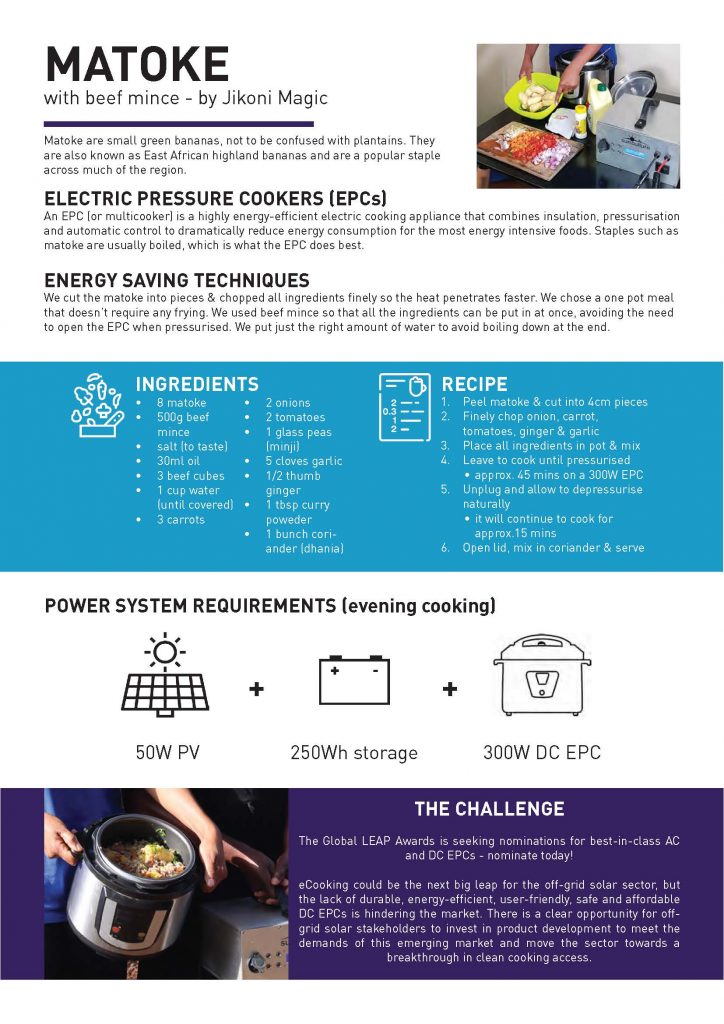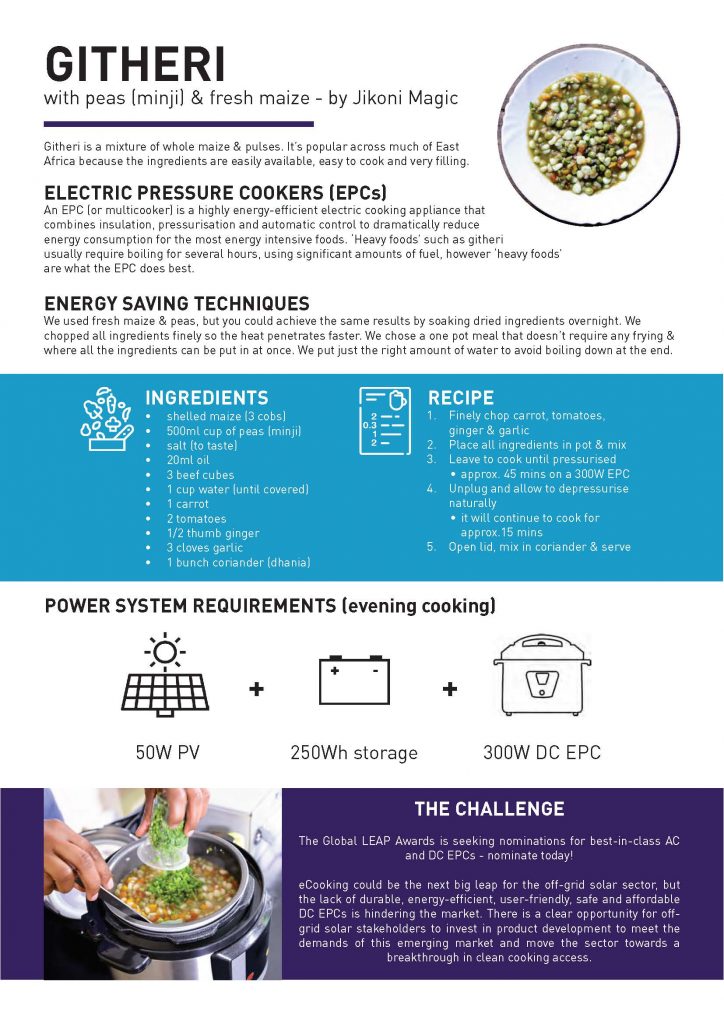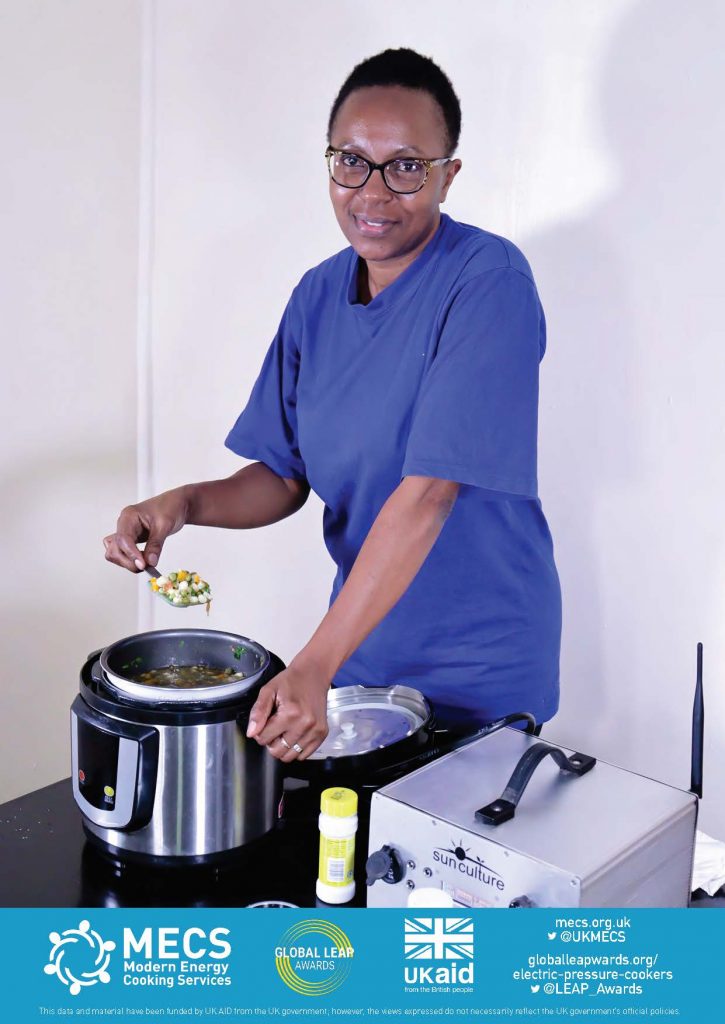- Date
- 19th March 2020
- Categories
- General
by Jon Leary, Agnes Kalyonge, Monica Kalyonge, Hannah Blair, Sam Grant and Max Garnick.
These solar eRecipes are designed to tackle the widespread perception that a solar home system sized for cooking would have to be so large, it could never be cost effective. Just as the LED has revolutionised the solar lighting industry by enabling far smaller and therefore cheaper solar systems to deliver the same energy service, the Electric Pressure Cooker (EPC) has the potential to do the same for solar electric cooking.
EPCs are better suited to some dishes than others so the solar eRecipes highlight the easiest wins for solar electric cooking – single pot meals where frying is optional and all the ingredients can be put in at once. Further energy savings are made by choosing fresh ingredients over dried and cutting everything into small pieces. As a result, these dishes can be cooked with under 250Wh in the EPC’s insulated and pressurised chamber. In fact, the mbuzi stew needed just 125Wh, however, it would normally served with a staple, such as ugali. This would be cooked separately, likely pushing up the total energy consumption for the meal to 250Wh.
They highlight a key challenge for the emerging solar electric cooking industry – the lack of a safe, durable and energy-efficient DC EPC. The Global LEAP Awards for EPCs is currently accepting nominations, with plenty of AC models expected, however very few DC models exist. There is a clear opportunity for off-grid solar stakeholders to invest in product development to meet the demands of this emerging market and move the sector towards a breakthrough in clean cooking access.
The solar eRecipes are a spin off from the eCookBook concept, produced as a collaboration between MECS Challenge Fund winners, Jikoni Magic and SunCulture and MECS partners CLASP and Loughborough University.
